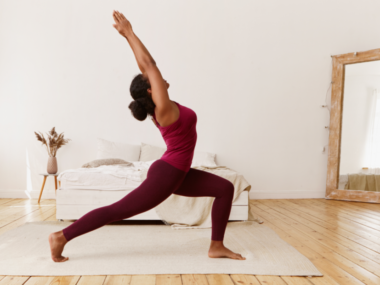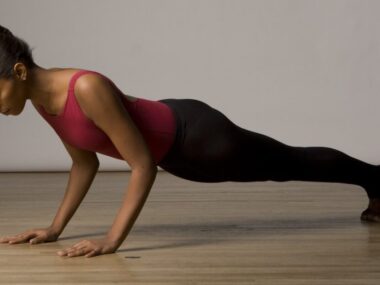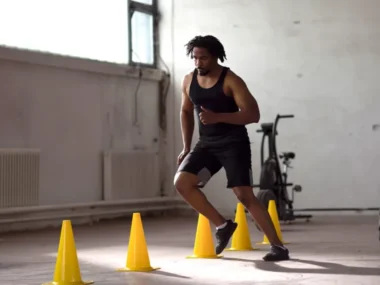Studies have shown that over 60 percent of American adults don’t get the adequate amount of physical activity and over 25 percent of adults are not active at all. From a busy schedule to not seeing results, there are enough reasons why people don’t Workout. But, of course, the benefits of getting and staying motivated to Exercise exceeds the downside. If you don’t regularly exercise and are hoping to change course, the first step is finding out what’s stopping you.
Here are eight reasons you’re not exercising, plus guidance on how you can overcome them
You Keep Quitting
You may begin strong and with the best intentions, but before you know it, you’ve lost your drive. People quit exercising for many reasons, including:
- Confusion: Do your research. Find out more about the machines at the gym and learn a little basic anatomy so you can target your exercises to your goals. If you go in without a plan, you’re more likely to choose random exercises or complete them sporadically. Most gyms offer how-to tours of their facilities.
- Boredom: Some people love treadmills or stationary bikes, but others find walking or pedaling to nowhere gets old fast. If you’re quickly getting bored with the exercises you’ve chosen, they may not be a good fit. Find something that holds your interest for the long haul or that offers enough variety to keep your workout from feeling stale.
- Soreness: When you’re just starting out, soreness is to be expected. However, you should still be able to function. If you’re so exhausted after your workout that you can’t lift your head off the pillow or you get an injury while exercising, you’re not likely to feel motivated to get back to it once you’re feeling better.
- Too much too soon: If you go from no exercise at all to hitting the gym seven days a week, you’re bound to feel burnt out. Instead, ease into a new routine.
If there is a prompt to quit, take it as a sign that it’s time to switch up your routine.
- Change your workouts: Try different types of training to keep things interesting, such as circuit training, high-intensity interval training, and kettlebells. Be sure to balance strength with cardio workouts. This also helps you avoid plateaus.
- Work with a trainer: An experienced trainer can turn a lackluster workout into an effective and challenging routine.
- Avoid skipping: If you want to skip out on the gym, there’s probably a reason. Really think about what it is and if it’s something you really can overcome.
You Don’t Know How to Exercise
Being a newbie to exercising can be overwhelming (and even intimidating). There are many different types of exercise you can try. Some will work for you and others might not. Figuring that out for yourself can be challenging. The good news is, there are plenty of resources out there to help.
If you’re a member of a gym or Fitness center, consider working with a personal trainer. If you’re working out at home or on a budget, try getting started with a free fitness program.
You Don’t Enjoy Exercise
Any exercise may seem hard at first, especially if you’re new to exercising. But as you become more consistent, your body becomes stronger. And while enjoying exercise may seem impossible, once you’ve found a routine that fits your personality and lifestyle, you might find yourself looking forward to your workout.
There are numerous forms of exercise, and you don’t necessarily have to stick to the first one you began with. Explore different forms, such as:
- Work out at home: You don’t have to hit the gym to get in a great workout. You can use your own equipment, like hand weights, right in your living room. Even your regular chores, like raking leaves, shoveling snow, or sweeping, burn calories. Make them more challenging to up their benefit (e.g., rake small piles of leaves instead of large ones so you need to squat down to gather them more often).
- Fitness apps: Downloading a variety of fitness apps on your smartphone or tablet can be like having your very own personal trainer. These apps offer ideas for workouts, ways to track your progress, and can help you stay motivated. In some cases, you can even connect and compete with others in the fitness community.
- Group fitness: If you like social exercise, most gyms offer a variety of everything from spinning and kickboxing to circuit and strength training.
- Games: Video games like EA Sports Active for Wii or Wii Fit Plus make fitness fun and family-friendly.
- ExerciseTV and videos: Many cable packages include ExerciseTV, a station that offers workouts anytime you like. You can also check your local library or shop online for workout DVDs or even stream a workout on YouTube.
You Can’t Afford a Gym Membership
There’s no reason you have to join a gym to exercise, but if you’re determined to leave the house to work out, there are more affordable options such as the YMCA or local community centers. To save money on workouts, you can also try:
- Walking or running: All you need is a good pair of shoes for this simple, accessible workout.
- Buy multi-use equipment: An exercise ball can be used for core work, weight training, and even cardio. Dumbbells are usually inexpensive and can be used for the entire body.
- Workout at home: If you need ideas, look to videos for inspiration. You can also make up your own routines—just put on some music and get moving.
- Find free resources: The Internet is a great source for workouts and weight loss programs, and your library is an excellent resource for trying workout videos or finding books about exercise.
- Try no equipment workouts: You can get a great workout without any equipment by using your own body weight.
You’re Too Stressed
Stress can make everything a bit more difficult to handle—workouts included. At the same time, waiting to feel like you want to exercise can lash back. Motivation is something you have to work at every day. Here are a few tips you can try:
- Talk with others about their goals and how they stay motivated. If you aren’t part of a gym or class, join some message boards or social media groups.
- Focus on how you feel rather than the numbers on the scale or what you see in the mirror, at least in the beginning. If weight loss is slow or you aren’t seeing changes in your body as soon as you’d hoped, it can be discouraging. But there are other benefits to working out, such as better balance and more energy, that you might be overlooking.
- Set reasonable weight loss goals and remind yourself of them every day.
- Each time you reach a goal, whether it’s completing your workouts for the week, losing weight, or feeling more energized, reward yourself. Go for a massage, put together a new workout playlist, buy new running shoes, or spend a quiet night at home curled up with a good book.
You Have No Time
When you’re looking at your to-do list, it might feel like you just don’t have time to exercise. But exercise doesn’t need to take a lot of time to be effective. And, if you look more closely at how you spend your time, you might realize you’ve got more of it to carve out than you thought.
- Put your workout on your schedule. Keep a calendar of your workouts so you can track your progress and stay motivated.
- Just because you can’t find a 30-minute slot of time during your day for a workout doesn’t mean you can’t work out at all. Try breaking your activity up into 10- or 15-minute segments. Research has shown that split workouts are just as effective as continuous workouts.
- Get up a few minutes early and take a brisk walk, use part of your lunch break for a stretch, or take the dog out for a romp after work. Even small changes, like parking at the far side of the lot or taking the stairs when possible, add up over time.
- Remember: Exercise generates energy. The more energy you have, the more you’ll get done each day.
You Don’t Notice Changes in Your Body
If you’re not losing weight as fast as you hoped or getting sculpted abs, the frustration might make you want to throw in the towel. Remember: You don’t put weight on or become deconditioned overnight. Likewise, you can’t lose weight or rebuild your strength overnight either.
Getting started is the first step toward reaching your fitness goals. Give your body time to react.
It could take up to 12 weeks of exercise before you start seeing major changes.
Make sure you’ve set realistic fitness goals and understand how weight loss works. In the meantime, stay focused on the many other benefits of physical activity, such as reducing stress and improving posture.
You Can’t Commit
When you only imagine exercise in the long term (“I have to do this forever!”), it can be tiring. Keep in mind that you don’t have to change everything in your life all at once, and not all the changes you make have to happen overnight. If you’re having trouble sticking to your workout routine try to:
- Start with little goals: It’s easier to stick with a workout when your goals start small. Try challenging yourself to walk an extra 10 minutes each day or get up early for a short yoga workout.
- Schedule: Schedule your workouts and prepare for them ahead of time so you’re not tempted to skip them.
- Make exercise a priority: Ask yourself if a fitness routine is truly important to you or if you just want it to be. Making exercise a priority takes commitment, and commitment takes motivation. Figure out what your goals are, but keep them realistic.
- Don’t focus only on losing weight: If your only goal is weight loss, it can be hard to stick to a routine if you don’t see results right away. While you don’t want to lose sight of your long-term goals, try giving some of your attention and focus to the other benefits of exercise.





